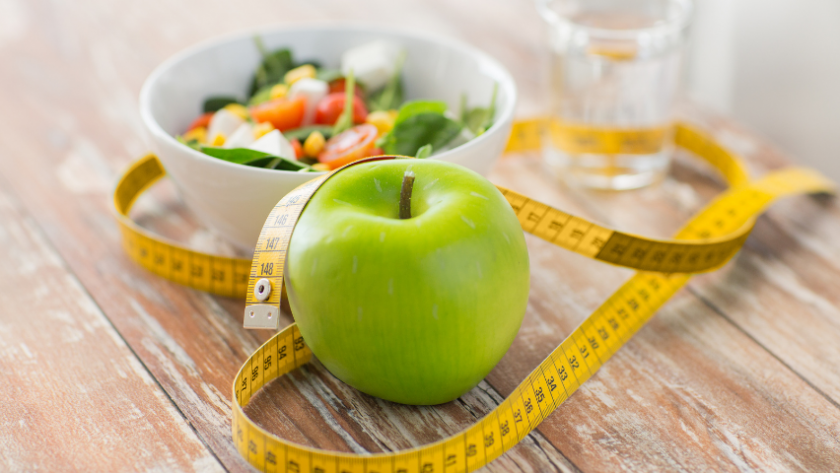After months of staying at home sheltering from the pandemic, I realised I was gaining weight. From 130 lbs, I already weighed 150 lbs. I was alarmed and surprised, so I decided to lose a pound and bring back my original form. I researched different types of diets online, and, to my utter confusion, there are literally dozens of diet options to choose from, all claiming different things. Diet fads have exploded over the pandemic with everyone looking for ways to stay healthy as they isolate, but this has meant there are some pretty conflicting ideas out there. As a result, people have turned to meal prep delivery as a way of getting all of the nutrition they need quickly and easily. If you are looking for the best diet and you’re overwhelmed with the choices, here are some of the most popular diets people are using:
Mediterranean Diet
As the name implies, this diet is inspired by people’s eating habits in Turkey, Greece, Lebanon, Italy, Spain, and other countries in the Mediterranean Sea. It is packed with heart-healthy foods, including nuts, vegetables, olive oil, sole fish, grains, and fruits. Red meat intake is consumed to a minimum. Dairy intake is minimized. It also emphasizes cheese and yogurt consumption. A study has revealed that the Mediterranean diet leads to weight loss. Unlike the paleo diet and intermittent fasting, the Mediterranean diet is easy to adhere to. Plus, it is found to reverse the symptoms of cardiovascular diseases and diabetes.
Ketogenic Diet
Over the recent years, the Keto diet has been one of the most debated diets. But what is it? How does it work? a Ketogenic diet is a low-carb and high-fat diet. Since carbohydrate intake is reduced drastically, it is replaced with fat, putting our body into a metabolic state, commonly called ketosis. At this stage, our body can efficiently burn fat for energy. Aside from weight loss, the Keto diet can help reduce insulin levels and blood sugar. The effects of a ketogenic diet can be further enhanced by incorporating a keto supplement into your diet. To understand how these supplements can be beneficial, it is recommended to check out Keto Reviews: The Science Behind The Pill or any similar resources.
But wait, there’s more. The Keto diet may minimize the risk of cancers, improve heart health, protect brain function, reduce seizures, and improve polycystic ovary syndrome. But the Keto diet is not suitable for long-term use. When you stay on the Keto diet for a few years, it can have adverse effects, including kidney stones, abnormal protein levels in the blood, a buildup of fat in the liver, and vitamin deficiencies.
Vegan Diet
Another popular diet is probably the vegan diet. In 2014, only 1% of Americans were vegans. But after three years, it reached up to 6%. In 2021, it is believed more than 9.7 million people in the country are following this plant-based diet. It is estimated to increase in the coming years. A vegan diet is popular for a reason. Studies found that vegans have a 25% lower risk of heart disease. A vegan diet may help reduce certain cancers. However, people may be deficient in iron, omega-3 fatty acids, calcium, and other minerals. Taking a supplement can come into play.
Paleo Diet
Often referred to as the Caveman Diet, the Paleo diet is similar to what people ate during the Paleolithic era. It typically includes seeds, nuts, lean meats, vegetables, fish, and fruits. Research has shown that it may help people lose weight and keep their blood pressure in check. However, with the exclusion of beans, legumes, and grains, experts warn everyone not to take a paleo diet in the long-term run. I’d suggest before you choose a diet, it is best to consult an expert for your peace of mind.
Gluten-Free Diet
The diet for people with Coeliac disease is difficult because foods rich in gluten are excluded. Of course, you are used to eating bread, biscuits, pasta, cereals, pastries, cakes, and pies. But when you still have gluten intake, you may suffer from bloating, weight loss, diarrhea, and abdominal pain. What are the foods you can still eat? There are massive options to choose from, including rice noodles, cheese, milk, butter, meat, fish, potatoes, fruits, and other vegetables. For more information, do not hesitate to contact your dietitian, nutritionist, and other health specialists.
Sirtfood Diet
It is probably the first time you have heard the sirtfood diet referred to. But it has been around for years. Created by Glen Matten and Aidan Goggins, the sirtfood diet focuses on foods rich in sirtuins. Good sources include olive oil, red wine, capers, dark chocolate, coffee, walnuts, coffee, Medjool dates, and arugula.
This diet is divided into two phases. In the first stage, you can drink sirtfood green juices. From there, you can eat a full meal high in sirtfoods for three consecutive days. In the second phase, you can eat three sirtfood-rich meals every day and drink green juice for two weeks. It may not sound very easy to some. Feel free to consult a professional for further details.




